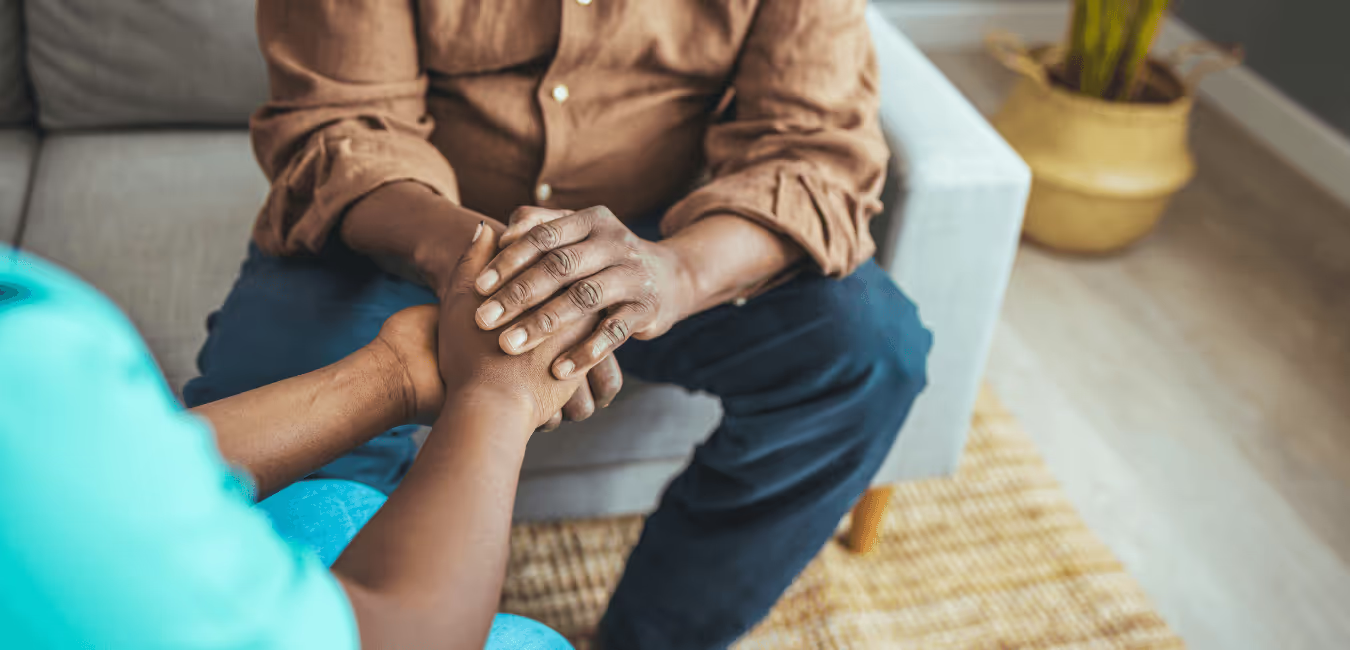Developing Empathy After Porn Addiction


Compulsive pornography viewing can ruin your relationships and harm every aspect of your life, but that’s not all. Viewing porn can dull your capacity for empathy. Repeated exposure to sexualized, unrealistic imagery can change how you view others, leading to objectification, emotional detachment, and an inability to relate to real people’s feelings.
As a result, developing empathy, or redeveloping it, becomes a crucial step in healing from pornography addiction.
Understanding the Link Between Porn Addiction and Empathy
Porn addiction is when you compulsively view porn to the point that you become emotionally dependent on it. You can’t stop, even if you try. And your pornography habit affects every aspect of your life, even changing the way you think about and relate to others.
Many forms of pornography emphasize objectification, portraying people as things to be used for personal gratification rather than as human beings with emotions, thoughts, and needs. Over time, this type of exposure can desensitize you to the emotional realities of other people and real-world relationships.
Porn addiction also encourages emotional detachment. You usually view pornography alone, focusing on immediate gratification instead of mutual connection. This habitual detachment can weaken your ability to recognize and respond to other people’s feelings.
Pornography addiction often forms when you use viewing porn as a way to numb or cope with difficult emotions. When you avoid these emotions instead of processing them, your emotional self-awareness and sensitivity to others’ emotions can decline. The result is often a decreased capacity for empathy, leaving you feeling disconnected from yourself and those around you.
The good news is that you can change emotional patterns. You can build your empathy again. It’s not lost forever. It can be relearned and strengthened as part of your recovery.
Why Developing Empathy Is Essential in Recovery
Rebuilding empathy after porn addiction is vital for lasting recovery and healthy relationships. Empathy allows you to truly understand how others feel, which is critical in repairing trust and fostering deeper connections. Empathy also enhances self-awareness and helps prevent relapse.
Developing empathy is also important because it:
- Strengthens your relationships by improving emotional connections, intimacy, and communication with others.
- Rebuilds trust, which addiction shatters, through sincere understanding and validation of others’ feelings.
- Supports accountability by helping you understand the impact of your actions on others.
- Reduces relapse risk because you’re more in tune with your emotions and can relate better to others.
- Fosters reconciliation by allowing you to have honest, empathetic conversations with loved ones.
- Enriches all areas of life by deepening your connections with others.
Practical Ways to Cultivate Empathy After Porn Addiction
The good news is that you can rebuild and strengthen your empathy. All you have to do is practice it consistently until it becomes part of who you are again. Here are some practical strategies for developing empathy after porn addiction.
Practice Active Listening
Give others your full attention during conversations. Make eye contact, minimize distractions, and focus on really listening to what others are saying. Reflect back what you hear and validate the speaker’s feelings without interrupting or offering quick solutions.
Engage in Vulnerable, Honest Communication
Share your feelings openly and encourage others to do the same. Being transparent about your emotions fosters mutual understanding and trust, helping you and the people around you feel seen and valued.
Try to Understand Others’ Perspectives
Ask open-ended questions about how someone feels or what they’re experiencing. Try to imagine what it’s like to be in their position, even if their experience differs from yours. The goal is to relate to and better understand the other person by putting yourself in their shoes.
Reconnect With Your Emotions
Use mindfulness, journaling, or meditation to become more aware of your feelings. The better you understand your emotional world, the easier it becomes to recognize and empathize with others.
Apologize Sincerely
One part of empathy is understanding when you hurt others and feeling genuinely sorry for the pain you caused. When this happens, work to understand why the person feels the way they do. Then, instead of trying to justify your actions, apologize sincerely. It will be easy to do if you care about their feelings, even if you don’t think you did anything wrong.
Spend Time With Loved Ones
It’s easier to feel empathetic toward people you genuinely care about. Spend time with your loved ones, but not just surface time. Instead, attempt to have undistracted, meaningful interactions with them. You aim to have deeper conversations and form stronger emotional connections with those you care about most.
Seek Professional Help
Working with a mental health professional can help you better understand empathy and what showing it looks like. You can practice empathy or even work to better understand why you don’t feel empathetic in certain situations.
Developing Empathy With Begin Again Institute
Empathy is a natural human emotion that you don’t want dulled. You want to understand and relate to others on deep levels. Otherwise, your relationships will be unfulfilling. If your ability to feel empathy was harmed by a pornography addiction, Begin Again Institute can help. Through our treatment program options, you can heal from intimacy disorders and better understand others again. Give us a call today to get the help you need.
Test Intensive Date
We get right to work, so you can get back to life.
“Begin again helped me jumpstart my healing. It’s like
a years worth of therapy in one trip.”


